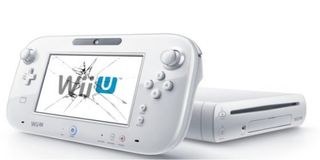Nintendo Doom And Gloom Continues While Media Ignores Wii U Situation

Nintendo admitted to the Wii U not living up to its potential. They admitted that sales haven't been all that great and that they've had to downgrade their forecasts for the early half of 2014. Things don't look good at all for Nintendo... or at least, that's what the media would have everyone believe.
I can't really say why there's so much hate for the Big 'N', maybe it's because they don't indulge in all the graphic violence and nudity like their competitors, or that they decide to do things differently instead of constantly mimicking a competitor to degrees of nearly becoming indistinguishable. But whatever Nintendo did to piss off the masses, they did it well.
The thing is, we've had articles all popping up in lieu of Nintendo's recent forecast, stating that Nintendo needs to sell off their console department and whore out their brands like Sega or Zynga. There are calls for Iwata's job. There's all these finicky posts about resignations and closures, even though Nintendo is still worth more than Sony, which speaks volumes about the management and value of one company over the other.
We have Forbes saying that the Wii U's sales move Nintendo close to “Game Over”. DualShockers is reporting that JP Morgan has downgraded Nintendo following the fiscal reports. Canada pulls a quote from Bloomberg that Nintendo could consider “smart devices” as the doom and gloom of their sales would prompt them to exit the dedicated gaming sector.
GamesIndustry.biz has quotes from Michael Pachter detailing how terrible a position Nintendo is in, but he's slightly more reasonable than some of the other doom-sayers, ironically, mentioning that...
“Nintendo's proprietary software continues to be first rate, but its console hardware is not competitive; the Wii U is under-powered relative to next generation offerings from Sony and Microsoft, and is not competitively priced (priced similar to current generation offerings from the competition). We don't think Nintendo should exit the console hardware business, but think it should consider getting out of the Wii U business, and consider going back to the drawing board on consoles. Nintendo has a console in the marketplace that isn't working, and if it continues to tilt at windmills, its software sales will suffer."
Pachter also mentions that Nintendo needs to start porting their software to the PS4 and Xbox One to stay competitive. Essentially becoming as worthless as Sega and Atari... wait, do those two even still make relevant games these days that aren't centered around controversy?
Okay, enough of the bull crap. Let's be real.
CINEMABLEND NEWSLETTER
Your Daily Blend of Entertainment News
The Nintendo 3DS, as reported by Shack News, was still the top selling dedicated game device of 2013. Exiting the hardware race would be blatantly stupid. Nintendo is profiting from their portable handhelds and they don't have to pay any royalties for having their own software on their own hardware. If they decided to become third-party software publishers (or developers) they lose all of the profitable leverage they have right now. Blatantly speaking: Only an idiot would throw out machines that generate money for them every month on end.
Historically, though, the Nintendo 3DS wasn't always a monkey-maker. In fact, its first year on the market was 4.5 million units sold, as reported by BGR. Unsurprisingly, that's around the same number that the Wii U managed in totality of its first year on the market. But that's too much common sense for the current market trend of hating on the Wii U, right?
But all this doom and gloom and blaming Nintendo for the downgraded forecast isn't really their fault. If you think about it, they were betting on third-party to kick in throughout 2013 to help flesh out the Wii U's software palette. That didn't happen.
Instead, there was a lot of ridiculously childish politics that the Wii U incurred from third-party publishers.

Rayman: Legends was supposed to be an early 2013 Wii U exclusive; a title to help further the system's library and keep the momentum going after it moved three million units in 2012, as reported by Kotaku – which is identical to the amount of units Microsoft managed to move with the Xbox One. What happened? Ubisoft delayed Rayman: Legends from its early 2013 release and made it a multiplatform title, as reported by Joystiq.
That's a notch on the belt.
Throughout 2012 and 2013 there were also multiple developers decrying the Wii U's hardware capabilities. That certainly doesn't help boost confidence in the gaming community or from gamers deciding on which multiplatform title to get (or whether to get a console for “better” multiplatform ports.) This "Nintendoom" has even persisted throughout 2013, with the most recent article coming from a developer writing on Digital Foundry.
That's another notch on the belt.
Then we have the infamous EA debacle over the alleged Nintendo Network, where they were supposedly angered that Nintendo didn't want EA handling their network's infrastructure (which would have used Origin as its core), and it led to an unfortunate fallout where EA decided to withhold games from Nintendo's latest console. Instead of getting Crysis 3, which was already completed for the Wii U, EA had it scrapped to further their political agenda against Nintendo, as revealed by Crytek's own CEO, Cevat Yerli.
Put another notch on the belt.
This was also accompanied by the Aliens: Colonial Marines debacle, where the Wii U version was supposedly going to receive exclusive material, but due to Sega and Gearbox, and Timegate, and Demiurge, and Nerve Software, all engaged in the public travesty of that title, the Wii U version was scrapped.
If you want, you can notch the belt with one more strike.

Couple in the negative press from publishers, EA canceling Madden and other titles for the Wii U, as well as other publishers basically blacklisting the system from their quarterly line-ups, and you have a system only being sustained by first and second party outings. Unfortunately, Nintendo didn't have any high-profile first or second party outings to flesh out the Wii U's library throughout the dim first and second quarter of 2013.
More than anything, it would have been a strange miracle if the Wii U did sell anything considering that there was nothing to sell it.
As was showcased by the resiliency of the Big 'N' heading into the holiday season, they used their own software prowess to regain a foothold and maintain their market lead as 2013 came to a close.
They were (and still are) winning in spite of purposed roadblocks from competitors and other publishers.
Technically, the Wii U's position and start wasn't much different from the Xbox One, and it's tough to find anyone calling doom and gloom on Microsoft's latest console.
In fact, Dead Rising 3 from Capcom has sold about on par to ZombiU from Ubisoft, according to VGChartz and the NPD figures, even though Ubisoft would have you believe that ZombiU was an abysmal failure.
In simple terms: Nintendo may be down compared to where people would like them to be, but they're still moving units and trudging through the war zone, mostly due to their own volition and steel resolve.
Heck, I would love to see if Microsoft could sustain the Xbox One throughout 2014 without Madden, NBA, NHL or an MLB game. I would also like to see where the sales would sit if Titanfall was delayed from March to September and then released on the Wii U and PS4. This may seem like silly talk, but that's exactly what happened to the Wii U in its first year on the market.
Thankfully, not everyone is jumping on the Nintendoom bandwagon. Nintendo Enthusiast acknowledges Nintendo's Wii U actually had its best month in December, and Techland writer Matt Peckham keeps a lot of the market trends in perspective; and if the momentum that the Wii U was granted from the holiday rush and big first-party outings is anything to go by, then all they need to do is keep rolling out the hits (and receiving support from third-party indies) and they're likely to get the Wii U to bounce back into the spotlight no different than the 3DS.
Given that Nintendo is the only pure gaming hardware manufacturer competing in the market, it definitely puts them in a different light than their competitors – who are each fighting to control the living room with media streaming and television support (some a little less successfully than others).
However, 2014 is a complete wild card; all these armchair analysts calling for Nintendo's demise may be laying their cards on the table a little too early. With the publisher politics set to the side and the Big 'N' focused purely on their first and second party line-ups, we'll finally get to see if Nintendo can hit a stride with the Wii U throughout 2014.
(First page image courtesy of Games Radar)
Staff Writer at CinemaBlend.

After New Details About Game Of Thrones’ Scrapped 10,000 Ships Spinoff, Here’s How Faithful It Would Have Been To George R.R. Martin’s Source Material

Netflix's Avatar: The Last Airbender Season 2: What We Know So Far

Billie Eilish Opens Up About Sexuality After Being Outed On A Red Carpet: ‘The Whole World Suddenly Decided Who I Was’
Most Popular





